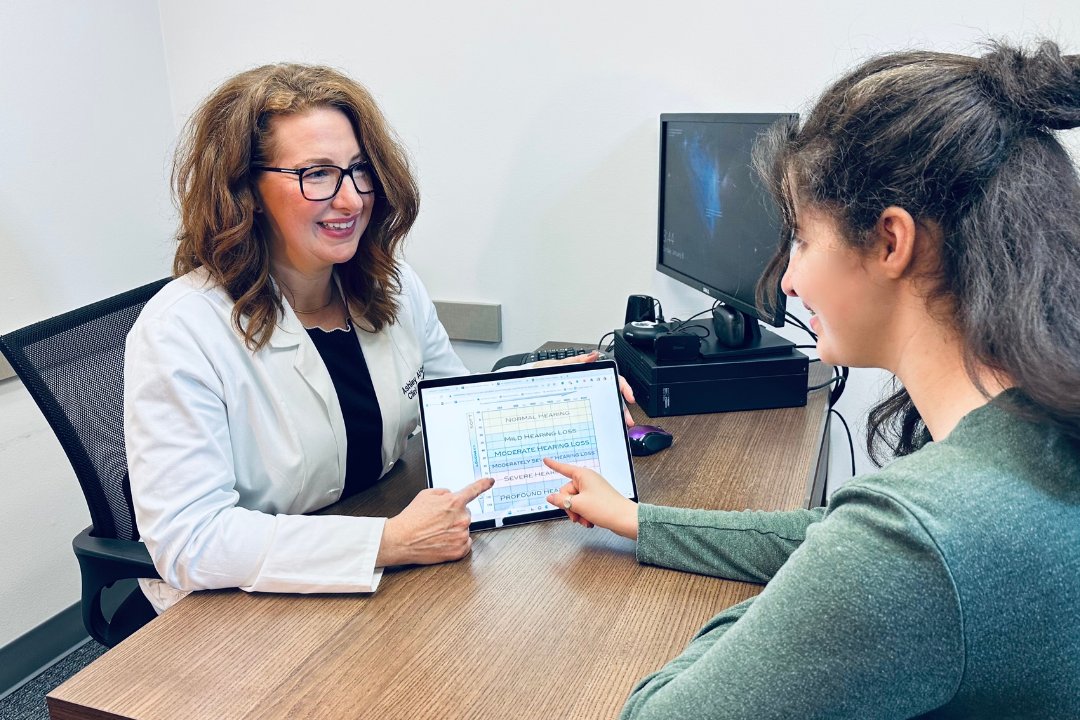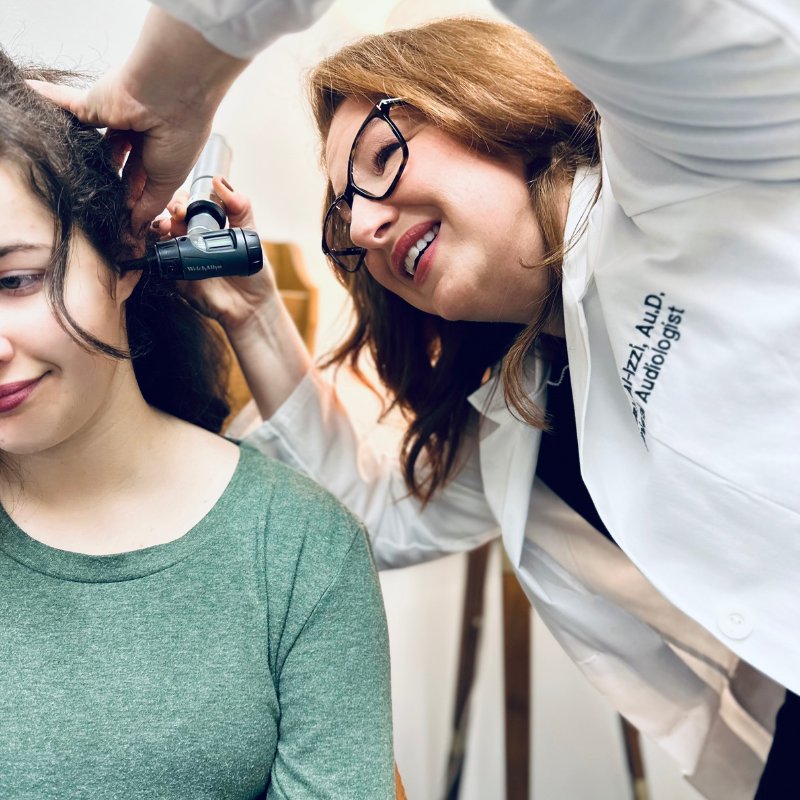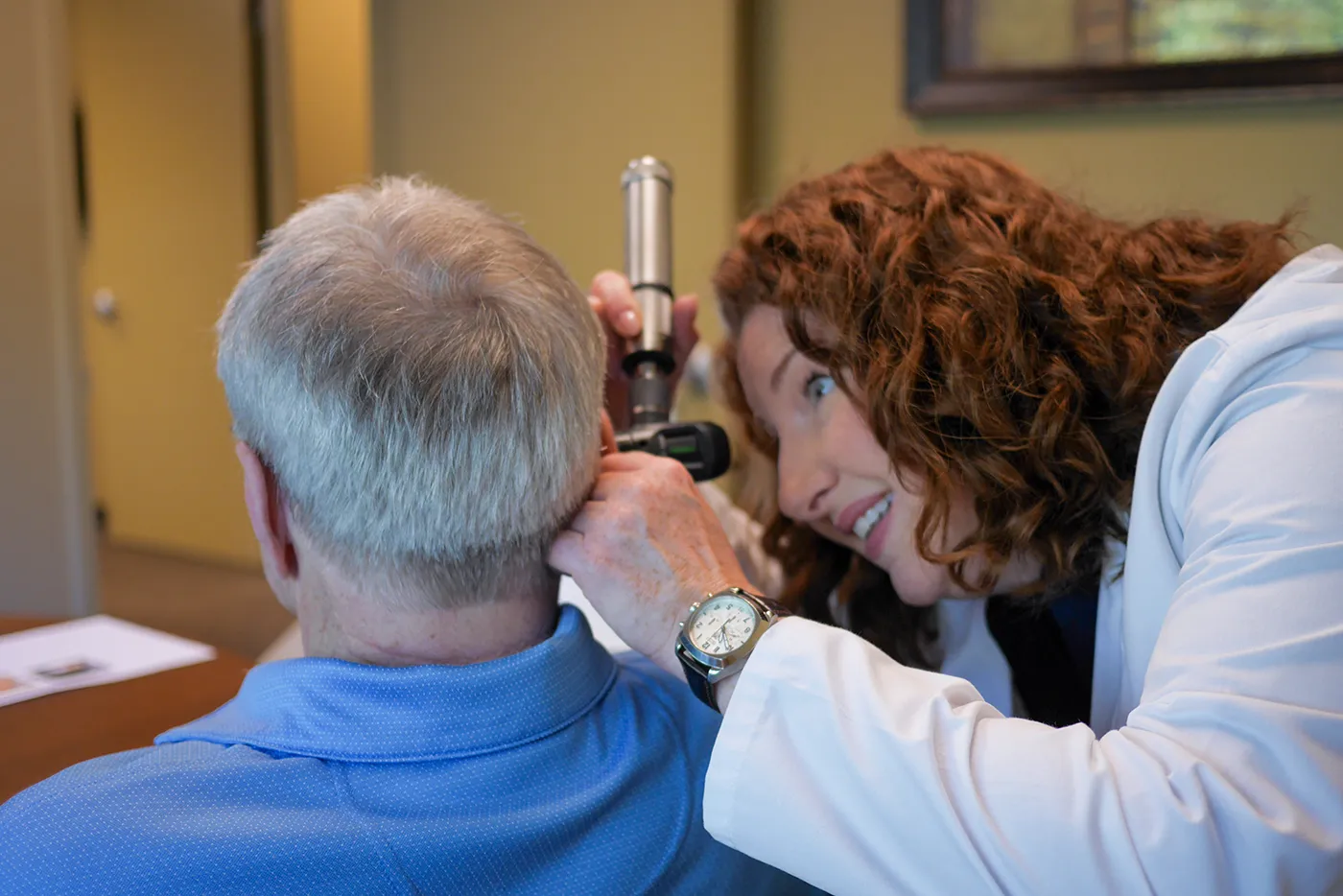Auditory Processing Disorder (APD) Evaluations
APD occurs when the brain has difficulty making sense of sounds, even though the ears work normally. People with APD often struggle in noisy environments, need frequent repetition, or find phone conversations particularly difficult. Understanding these processing differences is the first step toward finding effective solutions.


What is Auditory Processing Disorder?
An auditory processing disorder (APD) is a condition where the brain has difficulty making sense of the sounds it hears. It’s not caused by hearing loss—the ears might work just fine—but the way the brain interprets and organizes those sounds is where the challenge lies.
Think of it like this: if hearing is the ears collecting sound, then auditory processing is the brain understanding what those sounds mean. For someone with an APD, this process can be disrupted, making it hard to follow conversations—especially in noisy environments—distinguish similar-sounding words, or remember verbal instructions.
People with an APD often say things like:
- “I can hear you, but I can’t understand you.”
- “It’s hard to follow along when there’s background noise.”
- “I need things repeated or spoken more slowly.”
An APD can affect children and adults, though it’s often identified in childhood when listening and learning challenges become more noticeable in school. That said, adults can develop or become more aware of APD symptoms later in life, especially after a concussion, aging, neurological conditions, or just due to increasing demands on listening skills.
Peripheral Hearing Assessment
We first rule out any hearing loss with a complete diagnostic evaluation of your auditory system.
Processing Tests
We administer specialized tests that evaluate different auditory processing skills and pathways.
Results Analysis
We analyze patterns across tests to identify specific types of processing difficulties.
Personalized Recommendations
We develop targeted strategies including therapy options, technology, and environmental modifications.
Comprehensive APD Testing Process
We perform thorough evaluations for children and adults ages 4-59 using established protocols from the Buffalo and Bellis Ferre models. Our testing examines different aspects of auditory processing to create a complete picture of how your brain handles sound. The evaluation takes approximately 90 minutes and provides detailed insights into your specific processing strengths and challenges.
.jpg)

Understanding Your Auditory Processing
APD affects each person differently, which is why comprehensive testing matters. Our evaluation examines how you process speech in noise, distinguish similar sounds, and remember verbal information. We test temporal processing – how your brain sequences sounds over time – and binaural integration, which is how your brain combines information from both ears. These specific tests reveal why certain situations are challenging while others pose no difficulty.
For children under 7, we provide preliminary findings when appropriate. Early identification allows for timely intervention during critical developmental years. Adults who develop APD symptoms after concussion, illness, or age-related changes also benefit from understanding their specific processing patterns. Our testing provides the roadmap for targeted treatment.

Clear identification of specific processing challenges
Evidence-based treatment recommendations
Access to proven auditory training programs
Ongoing support throughout your improvement journey
Treatment Options That Work
Identifying APD opens doors to effective management strategies. Research shows that targeted interventions can significantly improve auditory processing skills. We offer several evidence-based approaches including computer-based auditory training programs like Acoustic Pioneer, CAPDOTS, and Lace AI Pro. These engaging programs can be completed at home, making therapy convenient and accessible. Low-gain hearing aids have also proven remarkably effective, providing subtle amplification that enhances speech clarity without over-amplifying environmental sounds.
Frequently Asked Questions
Get answers about APD evaluations and what to expect at Hearing Specialty Center.
Auditory processing disorders (APD) are considered a lifelong condition, meaning the way a person's brain processes sound will likely always be a little different. However, that doesn’t mean someone with an APD can’t thrive or communicate effectively.
With the right support and strategies, people with an APD can make tremendous progress and lead full, connected lives. These supports might include auditory training programs that help improve specific listening skills over time, low-gain hearing aids, and environmental modifications like reducing background noise or using assistive listening devices. They may also involve communication strategies such as speaking clearly, pausing between ideas, and confirming understanding, as well as educational accommodations for children like written instructions, extra time, or a quiet workspace. The key is early identification, consistent support, and a personalized plan. While an APD may always be part of someone’s life, with these tools in place, it doesn’t have to hold them back. Many people with an APD learn to navigate the world confidently and successfully—sometimes even turning their unique listening style into a strength.
Hearing Specialty Center performs evaluations for auditory processing disorders in kids and adults ages 4-59. An APD evaluation starts with a comprehensive peripheral hearing evaluation (see Diagnostic hearing tests). Hearing Specialty Center uses tests in the Buffalo and Bellis Ferre models during an APD evaluation. Testing takes about 90 minutes.
There isn’t a one-size-fits-all approach to treating APD, but there are several highly effective strategies that can make a meaningful difference. At Hearing Specialty Center, we focus on evidence-based options that support better listening, comprehension, and communication.
We test individuals between the ages of 4 and 59. While it's commonly said that APD can't be fully evaluated before age 7, we can provide a preliminary diagnosis (if appropriate) for children under 7. Identifying auditory processing weaknesses early allows for timely intervention and the opportunity to begin therapy as soon as possible.
Personalized Support for Auditory Processing Disorder
Living with APD can feel isolating and frustrating, but you're not alone. Dr. Ashley Al-Izzi, our owner and lead audiologist, understands these challenges personally – her own daughter was diagnosed with APD at age 11. This experience drives our commitment to providing compassionate, comprehensive evaluations that lead to real solutions.
Our evaluation process goes beyond identifying problems to discovering possibilities. By understanding exactly how your brain processes sound, we can recommend targeted interventions that address your specific challenges. Whether you're a parent seeking answers for your child's learning difficulties or an adult who's always struggled in noisy restaurants, our testing provides the clarity you need to move forward.
With access to the latest auditory training technology and evidence-based treatment approaches, we help transform auditory processing challenges into manageable differences. Many patients report significant improvements in their daily communication after following our personalized recommendations.
Take the first step toward clearer understanding. Call 425-821-6600 to schedule your APD evaluation with our experienced team. At Hearing Specialty Center, we're dedicated to helping you or your loved one navigate the world of sound with greater confidence and success.
Other Services
.jpg)
Tinnitus Management in Kikrland, WA
Our tinnitus management program combines diagnostic evaluation, sound therapy options, and personalized strategies to help reduce the impact of ringing, buzzing, or other phantom sounds in your ears.

Earwax Removal
Our audiologists provide safe, professional earwax removal using specialized tools and techniques to restore clear hearing and comfort when excess wax blocks your ear canals.

Lace AI Pro
Lace AI Pro is an adaptive auditory training program that strengthens your brain's ability to process speech in noise through personalized, AI-powered exercises you complete at home.

